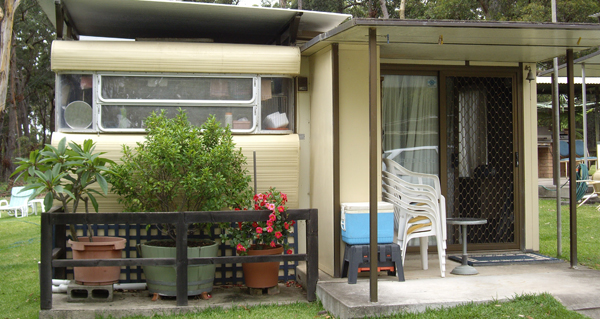Renting a home in a residential community
03/11/2015
 From 1 November 2015 people who rent a home in a residential community (residential park) will have rights and responsibilities under both the Residential Tenancies Act 2010 and the Residential (Land Lease) Communities Act 2013. This applies whether they rent from the operator or someone else.
From 1 November 2015 people who rent a home in a residential community (residential park) will have rights and responsibilities under both the Residential Tenancies Act 2010 and the Residential (Land Lease) Communities Act 2013. This applies whether they rent from the operator or someone else.
Residential Tenancies Act
The Residential Tenancies Act was written for premises in the general community, so on the whole the content refers to that situation. In residential communities the landlord may be the operator or it could be another person who owns the home and rents it out. The person who rents the home is the tenant.
In some respects the Residential Tenancies Act provides better protection and improves the rights of those renting in residential communities. The first example of this is the tenancy agreement.
In residential communities it is not uncommon for operators (landlords) to issue residents (tenants) with short fixed-term agreements, or to fail to provide a written agreement at all thereby giving no fixed term. Under the Residential Tenancies Act, if there is no written agreement the landlord is not able to increase the rent or issue a 90-day no-grounds termination notice within the first six months.
As mentioned in our introductory article, water charges are also different under the Residential Tenancies Act. Tenants can only be charged for water usage if the premises are separately metered and they have been fitted with water efficiency measures. In addition tenants cannot be charged late fees on overdue utility accounts.
Residential (Land Lease) Communities Act
Community rules
Rules can be more wide ranging under the Residential (Land Lease) Communities Act 2013, and whilst they no longer form part of the tenancy agreement everyone in the community is nonetheless required to comply with the rules.
The operator is required to ensure that rules are enforced fairly and consistently throughout the community. Operators and residents can make applications to the NSW Civil and Administrative Tribunal (NCAT) for enforcement action against anyone in the park who is breaking the rules.
The Tribunal can make a range of orders including requiring someone to comply with the rules, or terminating an agreement.
Access to the community
The operator is required to take all reasonable steps to ensure that tradespeople and service providers have access to homes in the community.
The operator must also take all reasonable steps to ensure that emergency and home care services have unimpeded vehicular access to all homes in the community at all times. This means that ambulances, for example, need to be able to drive up to the home.
An application can be made to the Tribunal if the operator fails to comply with the above requirements.
Residents committees
Many communities have residents committees and all residents (including tenants) have the right to be a member of these. The main purpose of a residents committee is to represent the interests of residents in the community.
Rules of conduct for operators
The rules of conduct for operators apply when dealing with tenants as well as home owners. These rules require the operator to: act honestly, fairly and professionally; not to deceive or mislead; and not to engage in high-pressure tactics or harassment.
If the operator fails to comply with the rules of conduct a complaint can be made to NSW Fair Trading. The operator can be fined for non-compliance with the conduct rules.
Tenants Advice and Advocacy Services can provide individual advice to tenants living in residential parks.
